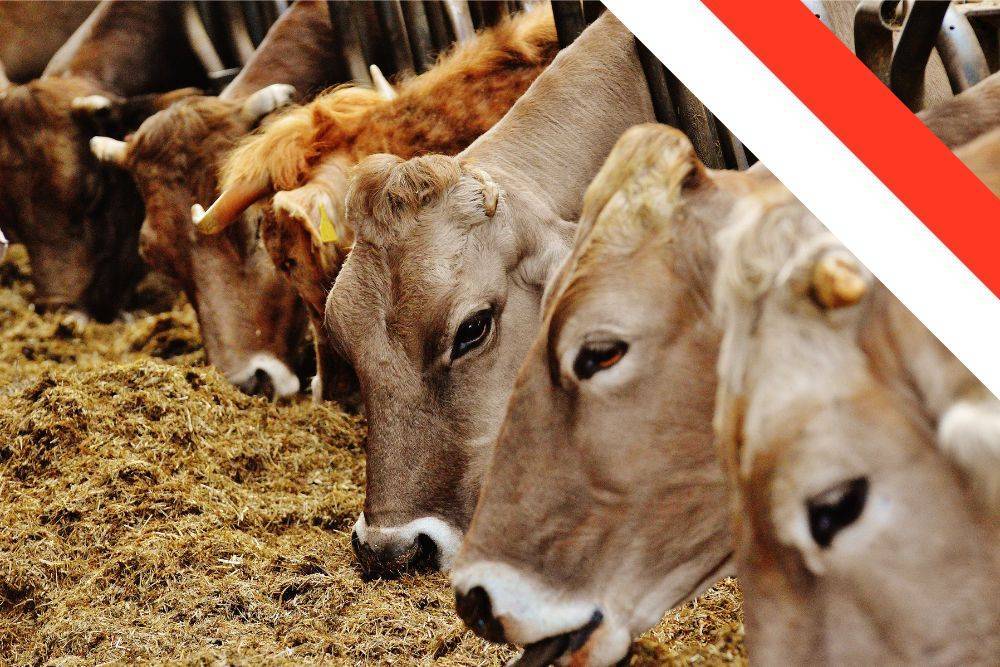The University of Brawijaya (UB) in Indonesia has created a new natural remedy for scabies in livestock.
The discovery promises eco-friendly and effective solutions without compromising animal health or the environment.
Implications for Animal Health and Agriculture
The adoption of natural remedies like cinnamon and lemongrass extracts could revolutionise scabies management in livestock. Farmers can mitigate environmental risks associated with chemical runoff and pesticide residues in animal products by reducing reliance on conventional pesticides. Moreover, integrating natural treatments aligns with global initiatives promoting sustainable agriculture and animal welfare. The approach enhances farm profitability by minimising treatment costs and also ensures the production of safe and high-quality animal products for consumers.
Sustainability and Environmental Impact
One of the standout benefits of using cinnamon and lemongrass extracts is their minimal environmental impact compared to chemical pesticides. Chemical treatments often lead to contamination of soil, water sources, and the wider ecosystem, posing risks to biodiversity and human health. In contrast, botanical extracts degrade more readily in the environment, reducing the accumulation of harmful residues and supporting ecological balance.
Economic Considerations
Beyond environmental advantages, adopting natural remedies presents significant economic benefits for farmers. Chemical pesticides incur substantial costs due to procurement, application, and potential regulatory compliance. In contrast, cinnamon and lemongrass extracts are more accessible and cost-effective to produce. This offers a sustainable solution that enhances farm profitability while reducing overall operational expenses.
The Benefit to Human Health
Department of Veterinary Medicine, Faculty of Animal Agriculture, University of Brawijaya (UB) of Indonesia articulates a discovery of a natural treatment of scabies in livestock through Cinnamon and Lemongrass extracts. That cost doesn’t just benefit farmers and their animals; what they’re doing has major positive impacts on human health as well. Here’s how:
Minimising the Risk Factor Level and Exposure to Harmful Chemicals
Chemical pesticides remain on the meat, milk and eggs we consume. These residues can be toxic and can pose various illnesses such as hormonal disruption, neurological disorders, and cancer. If natural treatments are adopted, we can avoid these chemicals in our foods and drinks, making them safer for human consumption.
Promoting Environmental Health
Chemical pesticides do not wash away or dissolve after they have been applied to plants or other target organisms. These can remain in the soil and water, pollute the environment. Additionally, they are likely to enter our drinking water and foods such as crops. The following contaminations are destructive to our health. Varying with the natural remedies which are easier to degrade and do not cause adverse effects on the environment. By using them, we assist in maintaining compliance within our environment and, by extension, the water and food we use.
Improvement of food safety and quality
The consumer’s needs have shifted and now they expect their foods to not only be healthy but also safe, and produced in a sustainable manner. Food resulting from animals being treated with natural remedies only meets these characteristics. The information concerning the absence of residual chemicals in the food we consume makes us confident of the food’s safety and quality. This also fosters better nutrition because a person is more likely to consume products from a proven source.
Mitigating Antibiotic Resistance
Chemical pesticides and chemicals used in farming help create antibiotic-resistant bacteria. Some of these bacteria are zoonotic, that is, they can be passed from animals to humans, aggravating existing infections. Using natural alternatives minimises the proper use of antibiotics in the agricultural field. Therefore, this directly contributes to the fight against antibiotic resistance and guarantees the efficacy of these drugs in treating a wide range of diseases in people.
Supporting Sustainable Agricultural Practices
This paper seeks to support the cause of sustainable agriculture. This is very important in the kinship of our planet and generations to come. Lastly, natural ways of treating diseases through herbal medicines act as an important element of this philosophy. This is because they address the issue of preserving natural resources, conserving diverse biospecies, and keeping the ecological systems in balance. The provision of these practices means that there is a regular supply of food that is both safe and nutritious for human consumption beneficial in the long haul for the health of people.
Consumer Safety and Product Quality
The shift towards natural remedies also addresses consumer concerns regarding food safety and product quality. Consumers increasingly prioritise products that are produced using sustainable practices and free from chemical residues. By adopting natural treatments for scabies management, farmers can reassure consumers about the safety and integrity of their livestock products, thereby enhancing market competitiveness and consumer trust.
Advancing Eco-Friendly Solutions for Scabies Management in Livestock
In conclusion, the UB research represents a significant advancement in developing eco-friendly solutions for managing scabies in livestock. The efficacy demonstrated by cinnamon and lemongrass extracts underscores their potential as viable alternatives to chemical pesticides and highlights their broader benefits for animal health, environmental sustainability, and economic viability in agriculture. Continued research and implementation efforts are essential to optimise the use of botanical extracts. This will ensure their efficacy, safety, and scalability in diverse agricultural settings.
Future Research Endeavors and Collaborative Efforts
Future research endeavours should focus on refining extraction techniques to maximise the bioavailability and stability of active compounds in cinnamon and lemongrass extracts. Additionally, conducting comprehensive field trials across varied geographical regions will provide valuable insights into the efficacy and adaptability of these natural remedies under real-world conditions. Collaboration between researchers, agricultural practitioners, and policymakers will be crucial in promoting the widespread adoption of eco-friendly practices and ensuring sustainable food production systems globally.
Have a pressing question for a doctor? Medical Channel Asia has launched a community forum page where you can get questions answered by a medical specialist. Visit the community forum here.

